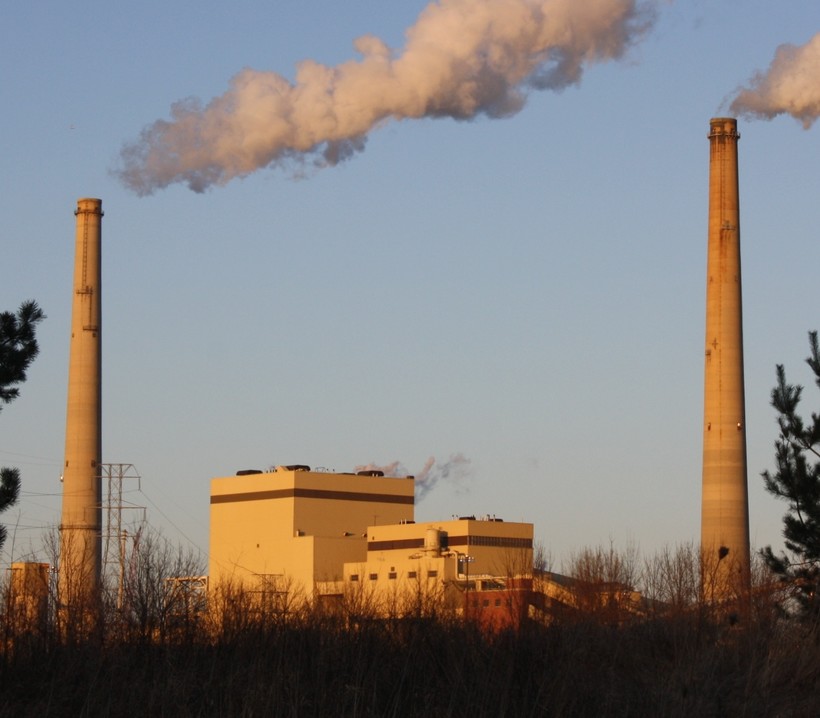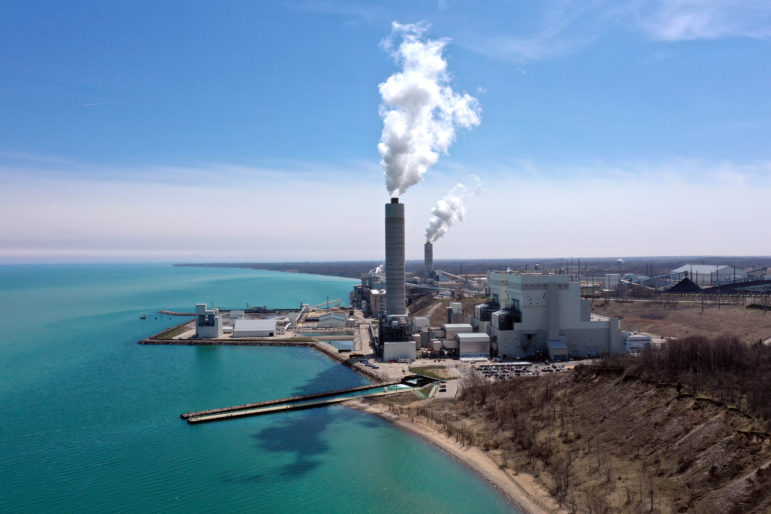Utilities Delay Closing Coal Plants
Alliant, We Energies say supply chain slowing down shift to renewables.

Madison-based Alliant Energy announced Friday that it’s shuttering its 380 megawatt Edgewater coal plant in Sheboygan by the end of 2022. Photo by Royalbroil, (CC BY-SA 3.0 Creative Commons Attribution-Share Alike 3.0), via Wikimedia Commons
Several Wisconsin coal plants will remain online years longer than planned as supply constraints caused by COVID-19 delay plans to transition away from fossil fuels, two of the state’s largest utilities announced Thursday.
Madison-based Alliant Energy and Milwaukee-based We Energies said those delays and economic challenges will postpone operation of clean energy projects. That means it will take longer for renewable energy to replace coal-fired power plants, requiring utilities to rely on fossil fuels longer than anticipated.
“Shifting the retirement dates for our coal-fired facilities in Wisconsin helps ensure we can weather multiple uncertainties while continuing to add cleaner, renewable energy to the grid,” David de Leon, president of Alliant’s utility in Wisconsin, said in a news release.
Alliant co-owns the Columbia plant with Wisconsin Public Service and Madison Gas and Electric. The utility also cited concerns with maintaining reliable power for customers after the Midcontinent Independent System Operator released a study that projected 15 states, including Wisconsin, could face an energy shortage next year.
We Energies announced Thursday that plans to shut down its coal-fired units at the South Oak Creek coal plant in Milwaukee County will be delayed by a year. The utility now plans to retire two units by May 2024 and its last two units by late 2025.

The plants, in Oak Creek, Wis., near Milwaukee, are coal-fired electrical power stations. Coburn Dukehart/Wisconsin Watch
“The decision to postpone the retirement dates for these units is based on two critical factors: tight energy supply conditions in the Midwest power market and supply chain issues that will likely delay the commercial operation of renewable energy projects that are currently moving through the regulatory approval process,” Scott Lauber, president of We Energies, said in a statement.
WEC Energy Group, the parent company of We Energies, has a $3.5 billion plan to retire 1,600 megawatts of fossil fuels and replace that with around 1,400 megawatts of power from wind, solar and battery storage. Wisconsin’s largest utility company has said customers are expected to save more than $1 billion over the next two decades as it invests in renewables and shifts away from coal.
Alliant is spending around $1.5 billion to build a dozen projects that will provide nearly 1,100 megawatts of solar power in Wisconsin. The utility planned to finish those projects by the end of next year to replace its coal plants. Wisconsin Power and Light, Alliant’s utility in Wisconsin, anticipated its Clean Energy Blueprint would save customers between $2 billion and $6.5 billion over the next 35 years.
Wisconsin environmental groups have called on utilities to speed up their transition away from fossil fuels in their power mix to combat climate change. Hundreds of scientists and world leaders have urged nations to take steps to reach net-zero carbon emissions by 2050 to avoid the worst effects of climate change. A United Nations panel issued a report last summer that the world is already set to exceed levels of warming they hoped to avoid, issuing a “code red” for humanity.
Alliant intends to eliminate coal from its power mix by 2040, and the utility said it’s on track to cut carbon emission in half from 2005 levels by the end of the decade. We Energies’ parent company has pledged to drop coal by 2035, and the utility said it’s committed to reducing emissions 80 percent from 2005 levels by 2030.
Editor’s note: This story will be updated.
Utilities say Wisconsin coal plants will operate longer due to COVID-19 supply constraints was originally published by Wisconsin Public Radio.



















